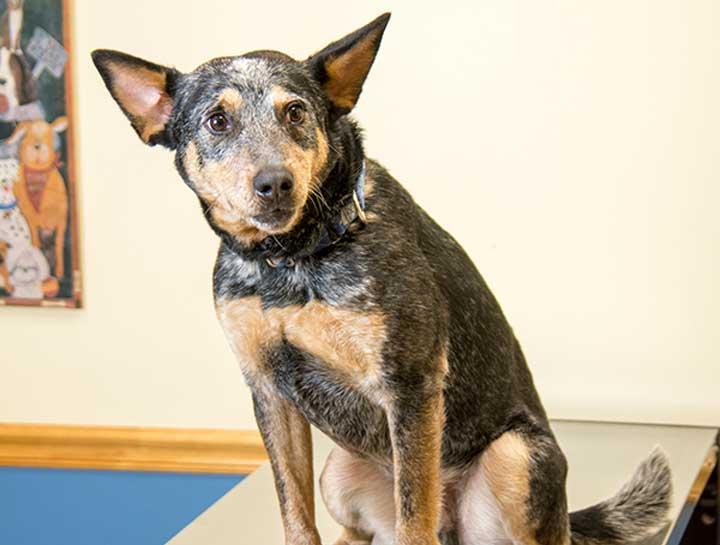What You Need to Know About “Dog Flu”

It is important to be aware of this infection and what you can do to keep your animals safe and healthy. Here are a few frequently asked questions.
What is the H3N2 Canine Influenza Virus?
As you might imagine, the H3N2 canine influenza virus is a contagious influenza virus that primarily infects dogs. It first began to spread in the US in 2015 and has infected thousands of dogs in more than 30 states, including here in Florida. The virus can also infect cats, but there is no evidence that it is able to spread to humans.
What does H3N2 cause?
It causes a respiratory infection commonly known as “dog flu”. Common symptoms usually include sneezing, nasal discharge, and frequent coughing. The symptoms can last two weeks or more. The infected dog may also experience fever, decreased appetite, and lethargy during the first few days of infection. Some dogs have more serious symptoms, including pneumonia, that can require hospital care.
Cats can also get a respiratory infection from H3N2. Symptoms include sneezing and nasal discharge, though coughing rarely occurs.
How do dogs get infected with H3N2?
The virus is spread through direct contact with a sick dog, or with an environment contaminated with the virus. Although H3N2 doesn’t affect people, they can carry the virus to an animal. The virus is usually spread through a dog’s cough, which produces an invisible virus-containing mist that can travel more than 20 feet in the air, rapidly spreading over long distances. This puts dogs in a kennel at particular risk as one sick dog is easily capable of infecting the entire rest of the group. The virus can survive for 12 to 24 hours on a surface, though it is easily killed with soap and water.
What dogs are at risk of infection?
Just about any dog, no matter the breed, age, or health, is susceptible to infection. The most at-risk dogs are those with a social lifestyle who often come into contact with other dogs, whether at a park, dog show, grooming salon, or kennel. Dogs that normally stay indoors and have little contact with other dogs, or with people who have contact with other dogs, have a lower risk of infection.
What should I do if my dog has symptoms?
Keep in mind that there are many other things that could be causing respiratory problems for a dog. A coughing or sneezing dog does not necessarily mean they have H3N2. However, to be safe, you will want to get your dog checked out by your vet. The first thing you should do is call. Do not go to your veterinary office without calling! If your dog is infected, they are highly contagious and could easily spread the virus to other animals in the clinic. Talk to your vet about your dog’s symptoms, when they started, and whether they have been in contact with other coughing dogs. Your vet will provide specific instructions on when and how to bring your dog into the office for a diagnostic test.
What should I do if my dog is diagnosed with H3N2?
Most dogs will recover at home without any problems. The only important thing to remember is that your infected animal needs to be isolated. Although symptoms will often disappear after two weeks, your dog can continue to be contagious for up to 4 weeks. That means you must keep your dog in your home and away from other animals for a full 4 weeks. If you have other animals in your home, you must assume that they also carry the virus and keep them isolated for the full 4 weeks as well.
About 1 in 5 dogs with H3N2 will progress to pneumonia. Symptoms of pneumonia include decreased appetite, labored breathing, and lethargy. If you think your dog might have pneumonia, contact your vet right away. Hospital care will likely be needed to help them complete their recovery. Luckily the mortality rate for H3N2 is low, especially with the proper care.
What can I do to keep my dog from being infected with H3N2?
The most important thing you can do is vaccinate your dog against the virus. Like with human vaccinations, the H3N2 vaccine is not 100% guaranteed to prevent infection but it drastically reduces the likelihood and usually reduces the severity if the infection does occur. And again like with human vaccines, the more dogs that get vaccinated, the more effective herd immunity becomes and the harder it will be for the virus to spread.
It’s also important to keep your dog away from areas and events where other dogs are present, especially if you hear news of the virus in the area. The current outbreak here in Florida seems to have spread from a couple of dog shows. Events like that are the perfect environment for the virus to spread far and wide.
If you are interested in getting your dog vaccinated, if your dog has exhibited any of these symptoms, or if you would just like to know more about canine influenza, please feel free to give us a call. Stay safe out there!
